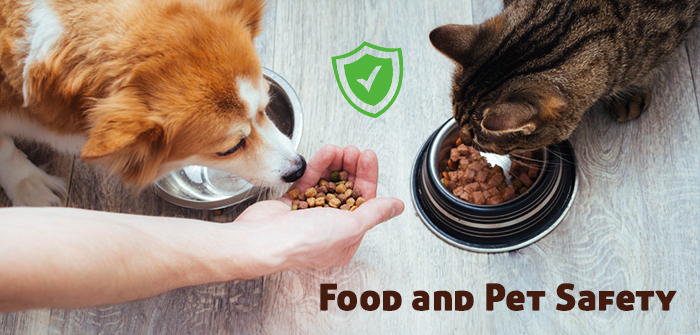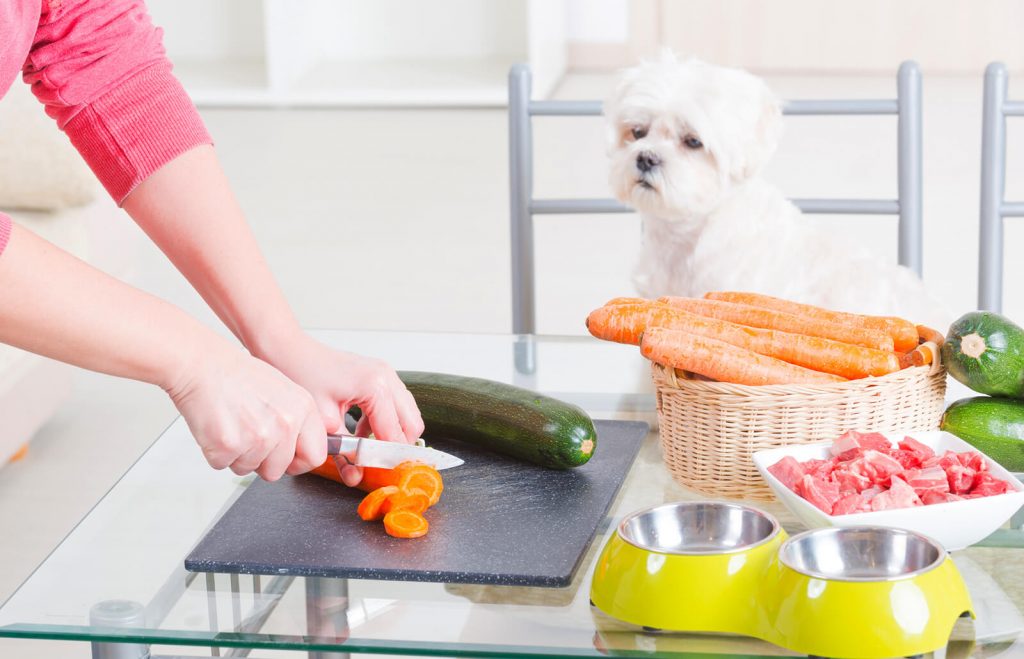Food and Safety for Pets
Whatever we eat has immediate effects on our health. Similarly, the overall health of our animal friends majorly depends on the foods they consume in their day-to-day lives. Therefore, it is vital that we educate ourselves with the safety measures we need to follow when choosing what to feed our fur companions and yet meet their nutritional requirements day in, day out.
Other than parasites-induced diseases, pets also suffer from various food-borne illnesses; such as Salmonella like a bacterial infection that is usually caused by contaminated food, and it may result in several other health complications in pets. If not handled adequately, these bacteria can be transferred to humans as well and compromise their health too.

A few simple steps while buying, handling, and preparing pet food can reduce the chances of contamination and maintain your pet’s health and wellness. Here’s what we can do;
BUYING PET FOODS
If you are not sure about your pet’s nutritional needs, talk to your vet before buying pet food products for your pet. Other key things to consider when procuring meals for your animal are,
- Be sure that the product is in a proper condition with the manufacturer’s seal, and there is no sign of damage such as tears and dents.
- Always see the product label and consider the nutrition value each serving provides and check whether or not it matches your pet’s nutritional requirement as well as their activity levels.
- Go through the list of ingredients and ensure whether they are safe and have an appropriate contribution to your pets’ needs.
PREPARING PET FOOD

When it comes to safety, one of the most crucial measures is to prepare your pet’s food. The following is what you need to keep in mind when preparing their meal,
- Just like the way you clean your hands before cooking your food, always wash hands with hot water and soap before and after preparing or handling your pet’s food. Bacteria and other organisms can be transmitted to your loved animal with the contaminated food.
- Wash your pet’s utensils before and after use. Avoid using a feeding bowl for scooping.
- Safely dispose of any old or left-over pet food products.
- Clean the preparation surfaces properly.
STOCKING UP PET FOOD
To keep the food healthy and fresh, it is important that we store it properly following the safety measures because if we don’t, there is every chance that the meal could lose critical nutrition and get infected with several microorganisms.
Following is the list of ways we can stock our pet’s favorite food while keeping the vital elements intact:
- Leftover wet pet meals should be stored in a sealed or covered container in the refrigerator.
- Dry dog food should be stocked in an air-tight, pet-proof container at a cool, dry place.
- Check the stocked food regularly and dispose of any spoiled or old product with a covered trash can.
- Do not allow pets near food storage or processing areas.
FOOD SAFETY TIPS FOR PETS
1 – Size of the Meal
It is vital that you check with your vet about your pet’s feeding requirements. Keep yourself aware of your pet’s activity levels and, if needed, seek an adjustment in the diet with the help of a professional dietitian. They are well-equipped to suggest a feeding schedule based on your pet’s nutritional needs.
2 – When feeding RAW diet
Raw foods such as meat, poultry, or seafood are not recommended in ideal conditions because of the greater risk of sickness that these diets present to the animal’s health. If still, you wish to feed your pet with a raw diet, the following are the recommendations,
- Keep raw foods frozen until ready to use.
- Always store raw food separately from other foods.
- Keep the raw food covered when stored and immediately discard the leftover.
- Wash utensils with hot water and soap; sterilize surfaces and feeding areas.
3 – Foods to avoid feeding your pet
- Alcoholic beverages
- Chocolates
- Garlic and Onion
- Milk and other dairy products
- Avocado
- Baked products such as cake
- Salty snacks
- Raw or undercooked meat
CONCLUSION
If we actively exercise the above-mentioned food safety measure, surely our loved companions will have a healthier life as long as they are with us.

